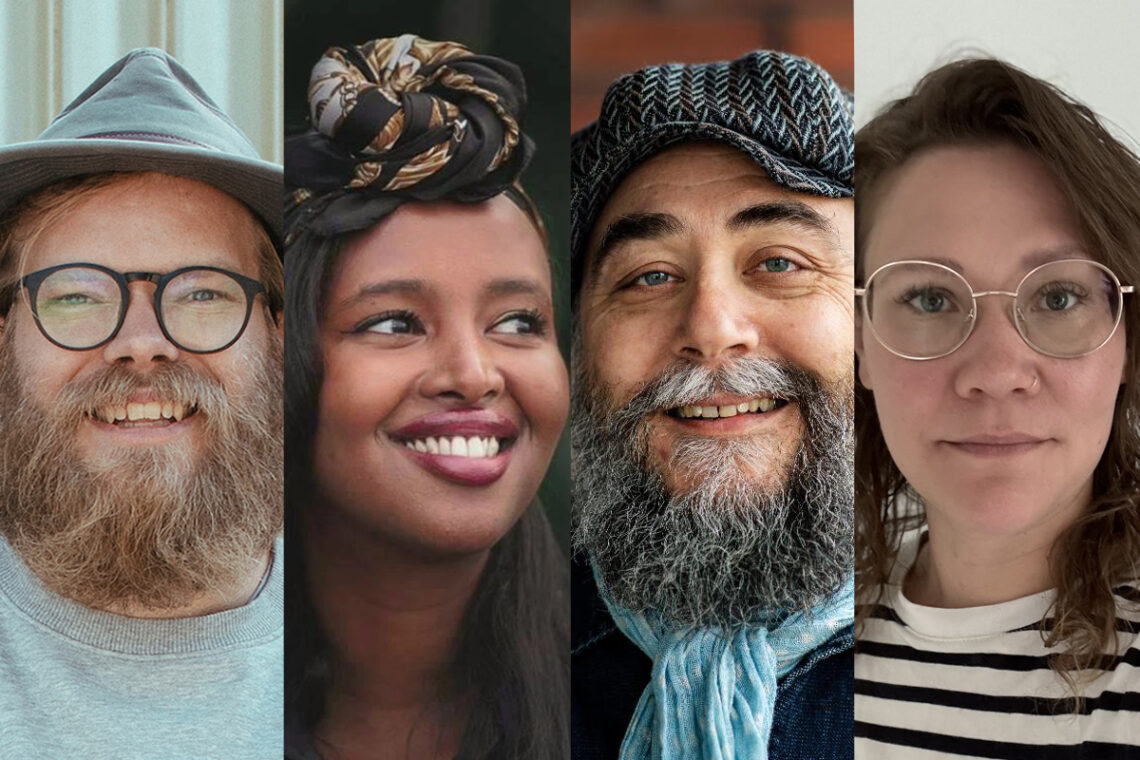The ’90s are back – also in Naima Mohamud’s upcoming “Halima,” produced by Finland’s It’s Alive Films, behind Oscar entry “Euthanizer,” and No-Office Films.
“It was a wild time. The hair! The clothes! I really wanted to go back to when boybands, Tamagotchis and popper pants were all the rage. And Aqua, the greatest ‘90s pop band in the world, [behind] ‘Barbie Girl’!” enthused the director, who used to be “obsessed” with its singer Lene Nystrøm.
“I tried cutting my own bangs and dyeing my hair with food coloring to rock her hairstyle. It didn’t work, of course, and the following months were agony. I got told off for wasting food coloring my mother needed to make Somali dessert halwa.”
In Mohamud’s partly autobiographical “down-to-earth dramedy about loneliness, childhood and conquering your fears” – currently in development and eyeing a 2025 shoot – it will be Halima’s turn to experience such “heartwarming and humorous” misadventures.
A 10-year-old Somali girl, she loves dancing, pop music and Leonardo DiCaprio. But her family, now based in Finland, moves so often she is struggling to make friends. Until she meets new classmate, Erika.
“Growing up Muslim and African in an often literally winter-white Finnish small town wasn’t easy – we stuck out like a pride of lions in a parking lot,” recalled Mohamud.
The film will also deal with some “heavier” events her family has experienced, such as loneliness, displacement or even encounters with local skinheads. But she will never abandon Halima’s own point-of-view.
“Most 10-year-old kids don’t necessarily think about racism or difficult situations the same way some adults do, so it was important for the script to remain optimistic. I think it’s this infusion of everyday comedy and relatable, fun situations [combined] with these heavier themes that will make ‘Halima’ a unique and hopeful film,” she said.
“The truth is, I’m still a child at heart! It’s a challenging casting as I’m looking for an extroverted Finnish-speaking Somali child who can convincingly play an introvert. But I’m sure we’ll find her, because where there is a will there is always a way,” she said.
Hope – and especially humor – will be a big part of the film.
“I love stories that restore our faith in life and humanity. I saw ‘Titanic’ when I was nine – I told my parents I was going to see ‘Anastasia,’” she admitted.
“Although ‘Titanic’ is a tragic story, I’ve always loved that Rose [played by Kate Winslet] got to live a beautiful and fulfilling life despite the horrors she had witnessed. As a child affected by war, I saw this aspect of the film as very hopeful.”
Mohamud is a “big fan” of other ‘90s classics, from “Mrs. Doubtfire” to “As Good as It Gets” and Roberto Benigni’s “Life Is Beautiful”: “A bittersweet tragicomedy set during World War II,” wrote Variety back in 1998.
“‘Halima’ is a love letter to those movies. A dream project would be to marry that nostalgia with modern sensibilities, and tackle a remake of one of those iconic films, like ‘The Parent Trap,’” she said, pondering the future.
Supported by the Finnish Film Foundation, “Halima” is produced by Anita Hyppönen – set to take part in Locarno’s networking platform Match Me! in August – and Jani Pösö and Hannu Aukia.
“I feel incredibly lucky to have such amazing producers helping me. No Office’s Hannu Aukia is a very talented filmmaker and I partnered up with him first on this project. He then brought along Jani Pösö and Anita Hyppönen from It’s Alive Films. They all make such unique films and TV shows, and also happen to be some of the best human beings in the business,” said Mohamud.
It’s Alive Films is behind Oscar submission “Euthanizer,” “The Man Who Did Not Want to See Titanic” or “Snot and Splash – The Mystery of Disappearing Holes,” a sales hit at Locarno last year. No-Office Films handled “Sound of Violence,” which premiered at 2021’s SXSW.
“Making a film is a long, hard process and the most important thing is to find people who are great, who you enjoy working with and who support and understand your vision,” she observed, also commenting on challenges faced by the Finnish industry.
“There are only a few film schools in Finland and the main one, Aalto [University School of Arts, Design and Architecture] accepted just two out of 138 applicants to study film directing last year. It’s more difficult to get into a film school in Finland than it is to get into Harvard.”
She added: “There are so many talented young people who maybe aren’t given the opportunity to prove themselves because they can’t get into these institutions – and that includes many POCs. It’s also good to keep in mind that just over 30 years ago the number of the people with foreign backgrounds in the Finnish population was at 0.8% and now that number is 8%. So there definitely has been, and there will be change.”
“With a more culturally diverse Finland, we see a country and an industry poised to tell unique stories with universal themes and a global reach.”

 Italian
Italian







